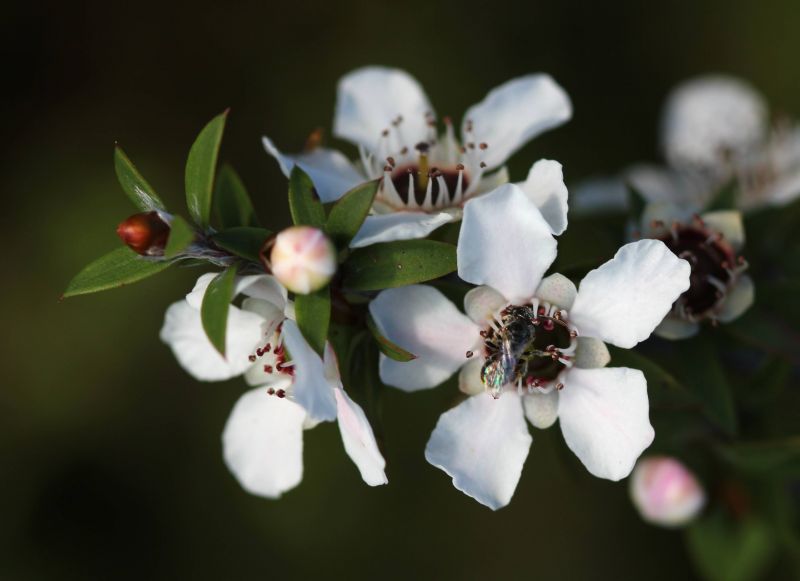Mānuka Roots Found to Assist Water Quality
Published on by Water Network Research, Official research team of The Water Network in Academic
A new study has found that mānuka and kānuka plants reduce nitrate leaching into waterways.
By Alexa Cook
Researchers planted young mānuka, kānuka, and radiata pine trees in containers, called lysimeters, which measure drainage and evapotranspiration from the soil, and then fertilised the plants with urea for 15 weeks.

Mānuka flower, Image Source: Wikimedia Commons, Author: Avenue
They applied the equivalent of 800kg per hectare to each pot to simulate urine patches, because research shows that on grazed land, animal urine adds nitrogen at rates up to 1000kg a hectare, contributing up to 70 percent of nitrate leachates.
The study found that after heavy application of urea, the soil around mānuka and kānuka trees contained a lot less nitrate than around the pines.
The programme is led by University of Canterbury Environmental chemistry professor Brett Robinson and is a collaboration between the German Research Foundation, Plant and Food Research, the Institute of Environmental Science and Research and the Centre for Integrated Biowaste Research.
Professor Robinson said they had found that mānuka and kānuka have interesting and unusual properties that reduce the amount of contaminants that move through soil and into waterways.
"They significantly reduce nitrate leaching, they attenuate pathogens, and we have good evidence that they also reduce run-off - including phosphorus and sediment that would otherwise contaminate waterways."
Read full article: RNZ
Access study: Kiwi Science
Media
Taxonomy
- Treatment
- Quality
- River Studies
- Lake Management
- River Restoration
- Water Quality Management
- Water Resource Management
- water treatment
- India